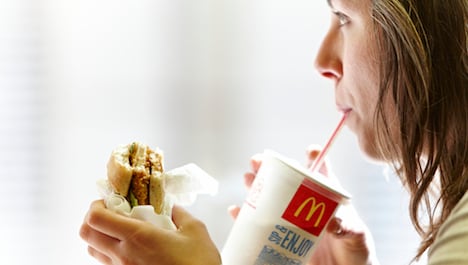Swiss media reported that Christoph Blocher, an outspoken figurehead of the far-right Swiss People’s Party, may have skirted Swiss law in helping spark an investigation into a money transaction by Hildebrand’s wife.
Kashya Hildebrand reportedly exchanged a large sum of Swiss francs weeks before the Swiss National Bank moved to devalue the currency by imposing a minimum value against the euro.
The SNB has since said an independent inquiry revealed no foul play.
Le Temps newspaper reported on Tuesday that Blocher delivered extracts from the couple’s banking documents to then president Micheline Calmy-Rey after requesting a meeting on December 15th.
Breach of client confidentiality is punishable by law but Basel authorities said on Tuesday no legal case had so far been launched.
Authorities will only act if a complaint is lodged, public ministry spokesman Markus Melzl told the ATS news agency.
Blocher, who has been critical of the SNB’s 1.20 francs to the euro floor, believing it should be higher for the sake of Swiss exports, has for the most part remained silent, merely telling media: “There’s a time to speak and a time to stay quiet. It is time to stay quiet.”
Kashya Hildebrand, who runs an art gallery in Zurich, reportedly bought $500,000 on August 15th, ahead of the SNB announcement on September 6th that it was to set a bottom limit for the franc against the euro.
The bank acted due to the currency’s value soaring amid the euro debt crisis, biting into Swiss exporters’ earnings.
After the measure was imposed, the dollar gained 10 percent against the franc.
Kashya Hildebrand said late on Tuesday that she had been interested in buying dollars due to the fact that they had “hit a very low level and become ridiculously cheap.”
In a written statement to SF Swiss television, her first public reaction to the currency revelations, the American of Pakistani extraction added that she had always followed the exchange market and had worked in the banking sector for 15 years between 1984 and 1999 before moving into art.
She said she was “astonished at the interest aroused by this purchase of currency” last August, saying the transaction had been notified to the Swiss National Bank and there had been no objection.
She justified the transfer by saying that 70 percent to 80 percent of the transactions carried out by her art gallery were done in dollars.
The SNB had responded to what it described as “unfounded rumours” in a statement on December 23rd, saying independent checks found no illegal transaction or exploitation of privileged bank information had occurred.
All transactions were examined in detail and “confirmed entirely with regulatory requirements,” the central bank said.
Blocher reportedly has strong contacts within the banking community, and in particular with Banque Sarasin in Basel where the transaction was said to have been made.
Late on Tuesday, the bank said one of its employees “illegally transmitted to a third party banking details” on Hildebrand.
The information concerned “transactions carried out by Mr. Philipp Hildebrand’s family,” the bank said in a statement, without providing details.
The employee said he had made the details of the documents known to “a lawyer close to the” Swiss People’s Party and that lawyer then arranged a meeting between the employee and Blocher, the bank said.
The Swiss government has said only that it was informed of the transaction and not by whom.
“Breaching client confidentiality is punishable by law. You can go to jail for it,” said a spokeswoman for the Basel-based Swiss Bankers Association.
“If that has been the case, then there ought to be an according procedure and sanctions.”
Under Swiss law, the head of the central bank is allowed to manage his or her own money dealings, unlike at the Federal Reserve and the European Central Bank where they are obliged to place their assets in a trust administered by a third party.


 Please whitelist us to continue reading.
Please whitelist us to continue reading.
Member comments